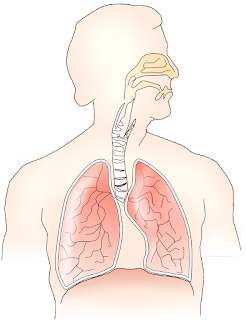How To Stop Hiccups Instantly – The Best Remedies, Triggers To Avoid & Foods That Help
Have you ever been in a situation where hiccups just won’t go away? It can be embarrassing, annoying and inconvenient. Most of us have experienced hiccups at some point in our lives, but few know how to get rid of them quickly. Fortunately, there are numerous ways to stop hiccups instantly and with minimal effort. In this blog post, we take a look at the best remedies for hiccups, triggers to avoid and even foods that can help put an end to them. Read on to learn more about how you can keep hiccups at bay!
What are hiccups?
Your hiccups are a spastic reaction of the diaphragm — that important muscle that separates the area of your lungs from your stomach — which normally contracts during inhalation and relaxes during exhalation. If something bothers your diaphragm, or interferes with the normal pattern of its contractions, it might contract synchronously, and air whooshes into your lungs — hic. There are many potential causes of hiccups, including: • Eating too quickly • Drinking carbonated beverages • chewing gum • smoking • stress or excitement • sudden temperature changes (eating ice cream or drinking hot tea) • fullness from a large meal • stomach distension (from gas or bloating) Common remedies for hiccups include: • Hold your breath for a minute or more: this sends a large amount of oxygen to your brain and relaxes the diaphragm. Or, you can try taking small sips from a paper bag (you can do this one while driving as well – it’s done that way in dodgy films!). Close your nostrils; drink a glass of water; don’t stop until you’ve taken a tiny sip: done carefully and allowing time for the initial urge to breathe out quickly, this can relax the diaphragm by forcing you to take sips. Gently tug your tongue: this distracts the nerve that tenses the diaphragm muscle. Swallow a teaspoon of sugar: sweet tastes can also reduce hiccups. Rub your Two unusual cures involve hypnosis and humiliation: ask a friend to hypnotise you and tell you to stop hiccupping; hang upside down so that the trapped air bubbles travel up your throat and out your mouth.
What causes hiccups?There are a number of things that can cause hiccups, including:
-Eating too quickly -Eating spicy or fatty foods -Drinking carbonated beverages -Chewing gum -Smoking -Stress or excitement In most cases, hiccups are harmless and will go away of their own accord. But if they last for more than a few minutes, or if they are associated with other symptoms – chest pain, difficulty breathing, early labour – see your doctor.Your hiccups are a spastic reaction of the diaphragm — that important muscle that separates the area of your lungs from your stomach — which normally contracts during inhalation and relaxes during exhalation. If something bothers your diaphragm, or interferes with the normal pattern of its contractions, it might contract synchronously, and air whooshes into your lungs — hic. There are many potential causes of hiccups, including: • Eating too quickly • Drinking carbonated beverages • chewing gum • smoking • stress or excitement • sudden temperature changes (eating ice cream or drinking hot tea) • fullness from a large meal • stomach distension (from gas or bloating) Common remedies for hiccups include: • Hold your breath for a minute or more: this sends a large amount of oxygen to your brain and relaxes the diaphragm. Or, you can try taking small sips from a paper bag (you can do this one while driving as well – it’s done that way in dodgy films!). Close your nostrils; drink a glass of water; don’t stop until you’ve taken a tiny sip: done carefully and allowing time for the initial urge to breathe out quickly, this can relax the diaphragm by forcing you to take sips. Gently tug your tongue: this distracts the nerve that tenses the diaphragm muscle. Swallow a teaspoon of sugar: sweet tastes can also reduce hiccups. Rub your Two unusual cures involve hypnosis and humiliation: ask a friend to hypnotise you and tell you to stop hiccupping; hang upside down so that the trapped air bubbles travel up your throat and out your mouth.



No comments: